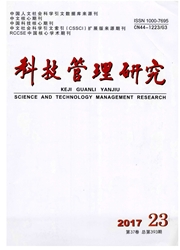

 中文摘要:
中文摘要:
以利益相关者理论为基础,从企业内部的资源和能力、外部的政府行为两个角度出发来考察广东省民营企业慈善捐赠行为的影响因素。运用Logistic回归模型,通过对273份有效问卷的实证分析,发现民营企业慈善捐赠行为与企业现金流的多寡没有显著关系,但企业形象、企业慈善决策机制、企业规模大小、企业所处的生命周期阶段对民营企业是否进行慈善捐赠有显著影响。我国民营企业应结合其资源能力和外部环境。开展战略性慈善捐赠,这是关乎其健康持续成长的重要要素。
 英文摘要:
英文摘要:
Based on stakeholder theory, this paper studies the determinants of corporate philanthropic behavior of private firms in Guangdong province from two perspectives: internal resources and capabilities and external government behaviors. The empirical analysis on 273 valid question- naires indicates that there is no significant relationship between corporate philanthropic behavior and corporate cash flow, but corporate image, cor- porate decision-making mechanism, and government hehaviors significantly influence corporate philanthropic behavior. Moreover, the firms with dif- ferent scale and at different stage of life cycle have different corporate philanthropic behaviors. It indicates that the private companies should engage in more strategic philanthropic, activities by balancing their internal resources and capabilities and external environment.
 同期刊论文项目
同期刊论文项目
 同项目期刊论文
同项目期刊论文
 期刊信息
期刊信息
